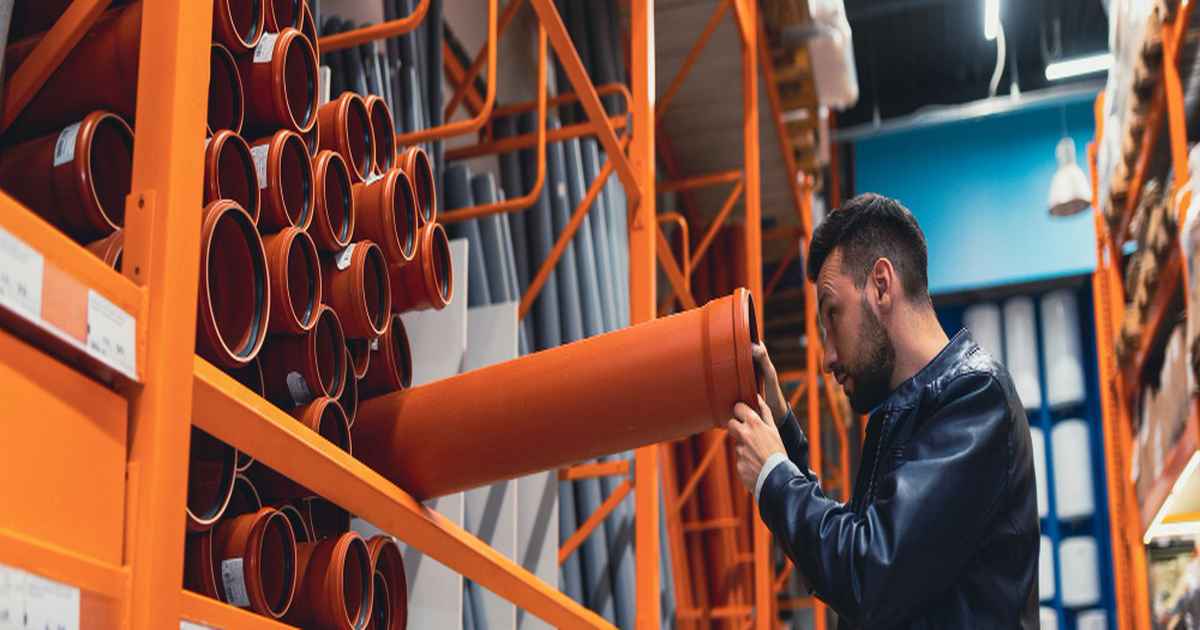What is ERP Software for Pipes and Tubes Industry?
ERP (Enterprise Resource Planning) software for the pipes and tubes industry is a specialized application that provides advanced production planning & scheduling, precise quality control, process automation, and risk compliance capabilities to meet real-world challenges and improve the efficiency of the pipes and tubes manufacturing.
ERP software for pipes and tubes industry allows manufacturers to gain visibility throughout every stage of the manufacturing activity, automate quality & compliance, reduce waste, and achieve cost-efficiency. Investing in such a future-proof technology enables businesses to identify defects earlier, comply with safety & security certifications, and manufacture products that align with the best industry standards.
Overview of the Pipes And Tubes Industry
The Indian steel pipe industry market is estimated to be around Rs. 50,000 Crore in size. Government colleges, hospitals, medical colleges, and high-net-worth individuals are the primary drivers of demand. Thanks to lower production costs and geographical advantages, India has emerged as the third manufacturing hub in the steel pipes and tubes industry.
You May Also Like: What is the difference between Quality Control and Quality Assurance?
Challenges Faced by the Pipe and Tube Industry
- Global Competition
Globalization has led to free trade and lower import barriers. As a result, the Indian pipe industry has to compete with powerful global players. Companies are under pressure to lower product prices and run costly marketing campaigns to sustain their presence in this highly competitive market.
- Regulatory Compliance
Companies operating in the pipe industry have to comply with various environmental and safety standards and regulations. It requires a significant investment in technology and solutions. This can put a financial burden on small and mid-sized companies.
- Volatile Energy Costs
The pipe and tube industry is vulnerable to fluctuations in energy prices. Higher energy costs can increase the operational costs of melting, forming, and heat treatment. Ultimately, it affects the profit margins of the companies.
- Logistics and Transportation
The pipe and tube industry is heavily dependent on transportation networks and logistics infrastructure for the movement of raw materials and finished products. Traffic congestion and poor road and logistics conditions often cause delays, accidents, and increases in transportation costs.
- Shortage of Skilled Labors
Lack of skilled labor can lead to different problems, such as quality and safety concerns, decreased productivity, and an increase in the cost of projects. Retaining skilled workers is not easy. Job markets have become increasingly competitive, and talented workers often switch jobs for better opportunities.
Future Trends in the Pipe And Tube Industry
- Rapid Demand for Seamless Pipes
In recent years, there has been rapid growth in the demand for seamless pipes, which hold superior properties and do not have any welds on their surface. Not only are these pipes strong and durable, but they are also resistant to corrosion.
- Automation and Robotics
Unlike humans, automated machines can work without breaks or fatigue. This results in a significant boost in productivity and high-quality welds. Automation can reduce defects and failures and perform tasks that are too dangerous for human workers.
- Usage of Eco-friendly Materials
There is a growing awareness about environmental conservation in the pipe and tube industry, such as the use of recycled materials and those with a lower carbon footprint. The use of recycled materials also provides an advantage in terms of cost savings.
- Quality Standards and Certifications
ISO-certified products undergo rigorous testing to ensure they are of higher quality and safe. ISO Certification offers standardization in product quality and adds credibility to products in society. For pipe and tube manufacturing companies, ISO Certification is crucial for survival.
Benefits of ERP for Pipes and Tubes Industry
- Real-time Visibility
ERP is a unified platform bundled with powerful Business Intelligence Tools. It brings transparency to business processes and helps with multiple tasks, such as procurement and management of raw materials, labor charge estimation, order processing, managing organizational data, resource planning, improving the supply chain, and automated report generation. It contains various product configurations, such as pipe and tube dimensions, materials, and coatings.
- Optimized Production Planning
An ERP solution consolidates information from different sources, such as inventory levels, client requirements, and warehouse capacity. Real-time access to this key information enables reduced load times and accurate demand forecasting. ERP also has its own asset tracking system that provides complete visibility into all organizational assets, regardless of plant location, for efficient and accurate production planning.
- Efficiently Manage Marketing and Discount Campaigns
In the B2B domain, maintaining client relationships is important to maintain a continuous flow of orders. ERP solutions simplify discount management by replacing the traditional way of using multiple spreadsheets with a single system where businesses get all the required data with a few clicks.
- Track and Manage Different Types of Pipes
Pipe and tube manufacturing companies manufacture a variety of pipes, such as plastic pipes, metallic pipes, fiberglass pipes, and concrete pipes. Tracking each pipe’s specification and production details and finding the right tube for the right application becomes easier with an ERP.
- Simplified Warehouse Management
The extended warehouse management in ERP tracks the movement of pipes from the production plant to the warehouse. While the pipes are being picked and packed using automated systems, the software consistently tracks the procedure to find room for improvement and reduce errors and accidents.
- Quality Control and Traceability
The complex task of tracking and monitoring processes, quality checks, inspections, and certifications becomes easier with ERP. The business gains traceability throughout the supply chain operation. The software automatically compares historical quality check data with the current data to set new targets and take timely majors.
You May Also Like: How ERP Software helps Oil and Gas Industry
Steps for Implementing ERP Software in Pipes And Tubes Industry
- Planning and Preparation
This is the first step in the ERP implementation. It involves thorough planning to define stakeholders responsible for the implementation and the drafting of a project plan.
- Vendor Selection
After defining the goals and strategies, your project team collaborates with the higher management to choose the best business management software. This is an important process as the implementation of the ERP systems is a complex and extremely time-consuming process, and selecting the wrong solution can result in production downtime, loss of productivity, financial loss, and confusion.
- System Design
At this stage, your project will closely work with the ERP vendor to define the system functionality, data structures, and other parameters. It also involves configuring the system to secure your confidential business data.
- Testing and Deployment
After deploying the best ERP software in India, it’s important to test it. Untested ERP systems can provide unreliable results, which can lead to incorrect decision-making, loss of business opportunities, and financial loss.
- Employee Training
ERP is a complex system. You would need to train your employees to efficiently use the system and make the most of it. Without proper training, it will add up to errors, miscommunication, and misreporting.
- System Configuration
This step involves configuring the ERP for the unique needs of your company. It is a crucial step to ensure your implementation meets the defined targets and goals.
Gain Advanced Analytics & Business Intelligence with Sage X3
An ERP brings complete visibility into all business operations, from inventory management and quality checks to material pricing control. It eliminates inefficiencies that cost businesses in a variety of ways, such as stagnant sales, reduced productivity, and lower profit margins.
Sage X3 is a multi-faceted ERP that supports the specific needs of the pipes and tubes industry regardless of whether it’s a multi-lingual company, multi-currency, or multi-country. Your business will benefit from a solid technological framework, flexibility, scalability, traceability, cost controls, and greater efficiencies.
Frequently Asked Questions (FAQs)
1. What is ERP for pipes industry?
ERP for pipes industry is a business management tool dedicated to the pipes manufacturers. It helps them gain deep control over the production activity, allocate resources efficiently (materials, machinery, and humans), reduce downtimes, and achieve standardization across different processes.
2. What is ERP for tubes industry?
ERP for tubes industry enables tube manufacturers to manage every aspect of their business from production and inventory management to finance. This multi-country, multi-currency, and multi-lingual software allows them to track costs and ensure efficient use of resources to mitigate potential risks and comply with the best industry practices.






